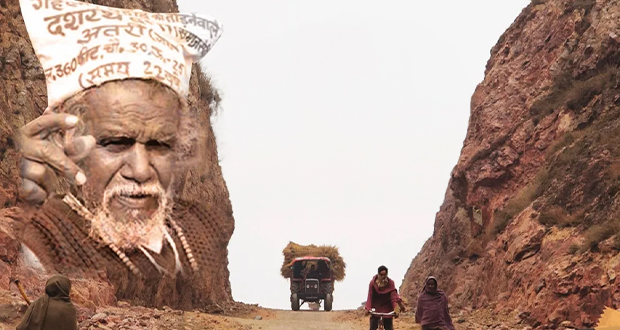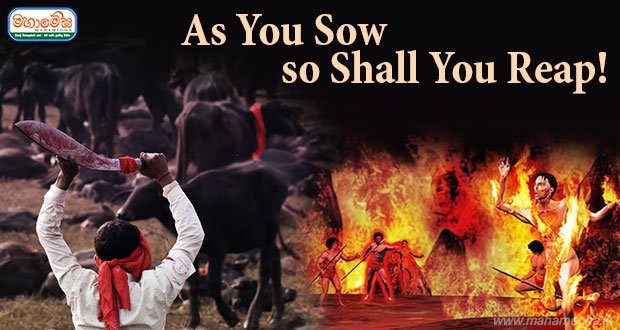Dashrath Manjhi finished carving his inimitable path in 1982. He died in 2007 and was given a state funeral.
Tools of his trade: A hammer, a chisel, and crowbars.
We all encounter significant challenges that make our lives harder than necessary. But consider facing a real mountain, three hundred feet tall, blocking your access to the broader world. This was the reality for Dashrath Manjhi and his village, cut off from society by an immense mountain. Unwavering, Dashrath set out to defeat this literal giant, dedicating 22 years to chisel through it, connecting his community to the outside world.
Humble Beginnings
On Jan. 14, 1929, Dashrath Manjhi was born into the Musahars, the lowest possible caste in Indian society, and which quite literally translates to “rat eaters.” Raised in Gehlaur, India, Manjhi was married to a local village girl named Falguni Devi and sent to work and live onsite at the coal mines of Dhanbad. After seven years of hard labor, he finally returned home, became a day laborer, and started a family.
Gehlaur was a very backward village with no development. Like all other poor villagers, Manjhi had to travel through a narrow and hazardous pass to cross a huge mountain, located between Atri and Wazirgunj region in Gaya district, for daily wants and work. In Gehlaur, as in many nearby villages, the women had to make a difficult journey every day to fetch water for themselves and their families. They had to hike over a 300-foot tall mountain that stood between their village and the nearest river.
One day, Falguni, who was pregnant, was taking lunch for her husband who was working in the fields. She had got to climb the mountain in blistering heat. Unfortunately, Falguni slipped and fell down from the mountain and was injured badly. While Dashrath was waiting for the food when someone from the village informed Dashrath about the accident of his wife. Dashrath ran into shock and took her blood-splattered wife to the nearest town that was about 55 km away. She gave birth to a baby girl but scummed to her injuries.
The Genesis of a Dream
In an effort to prevent such tragedies from happening again, he boldly vowed to carve a path through the mountains. He was so dedicated to the daunting task that he sold his goats in order to buy a hammer and a chisel needed for the feat set before him. Working in the fields during the day and hammering at the mountain at night was difficult, even for young Dashrath who was then in his early twenties.
A Lone Warrior’s Struggle
He decided that making a safer environment for the people in his village, nearby villages, and for generations of travelers was more important than bringing in a steady income. As a result, he quit his day job. Occasionally, he would carry luggage over the mountain for travelers in order to earn some money, but his family sometimes went without food. For 22 years, Manjhi worked to make a safer road through the mountains. He burned firewood on the rocky terrain and splashed the heated surface with water to chisel away at the cracked boulders and turn them into rubble.
Perseverance in the Face of Skepticism
Spending decades trying to accomplish a task seen as nearly impossible is difficult, especially when others in the community don’t agree with what you are doing. There were many people in Dashrath’s village that made fun of him because they thought he was crazy. Dashrath Manjhi recounts, “When I started hammering the hill, people called me a lunatic, but that only steeled my resolve.” The villagers, when word went around, laughed at Manjhi, and said he was nuts. Why spoil womenfolk, some winked. After all, hadn’t generations of women fetched water from the other side? What was so special about his wife? Women were made to fetch and carry, weren’t they?” Dashrath Manjhi was teased, jeered at, and made fun of, but he had the courage and determination to ignore them and keep working. It paid off too, because after enduring the taunts for a while, Manjhi says, “There were quite a few villagers who lent me support later by giving me food and helping me buy tools.” If he had given in to the rest of his community’s bad attitude, he would never have achieved his dream.
Triumph of the Human Spirit
In 1982, Manjhi’s dream of chiseling a path through the mountain to make the trip to the other side safer and shorter was finally achieved with the completion of the 360 feet long, 30 feet wide, and 25 feet high path. People from 60 different villages were able to use his chiseled road to travel to the river, hospital, and school. Thousands of people from his village and others like it use his road every day. The distance of their daily journeys was cut from over 55 km to less than 15 km, using Dashrath’s new road. The villagers call him ‘Baba’, meaning the revered man, and people around the world know him best as ‘The Mountain Man’. Manjhi said, “That mountain had shattered so many pots, claimed lives. I could not bear that it hurt my wife. If it took all my life now, I would carve us a road through the mountain”. But with the passing years, his motivation changed. “My love for my wife was the initial spark that ignited in me the desire to carve out a road. But what kept me working without fear or worry all those years was the desire to see thousands of villagers crossing the hill with ease whenever they wanted,” Manjhi said in an interview. He knew how many people he would be helping with his feat, and his love for those people is what kept him going for twenty-two years.
Beyond the Mountain: A Continuing Legacy
After achieving his goal of making the path safe, Dashrath still wasn’t satisfied; “He began knocking on doors, asking for the road to be tarred, connected to the main road. He walked along the railway line all the way to New Delhi, the capital, collecting signatures of station masters in a book.” In New Delhi, he submitted a petition for his road to be tarred, and for a hospital to be built and water to be piped into his village. Furthermore, he went to the Chief Minister of Bihar, Junta Durbar, to see if his road could be paved. The Chief Minister, honored to meet Dashrath, got up from his chair and offered it to him. The government gave him 5 acres of land as a reward, but he donated it for the building of a hospital. He said, “I do not care for these awards, this fame, the money. All I want is a road, a school, and a hospital for our people. They toil so hard. It will help their women and children.” Sadly, Dashrath never got to see his finished road, which was finally paved in 2012. He passed away from gallbladder cancer on August 17, 2007, but he will be remembered for giving up everything of his own to help others.
The Eternal Lessons of Dashrath Manjhi
Due to Dashrath Manjhi’s extraordinary qualities—empathy, compassion, patience, effort, resilience, and determination—he achieved an astonishing feat despite widespread ridicule. Dashrath Manjhi dedicated years of his life to a noble dream, demonstrating unwavering courage and resolve, and benefiting countless individuals. He inspired many across India and the globe to pursue positive change, irrespective of the required sacrifice or bravery. His sole willingness to tackle such a daunting challenge signifies his extraordinary dedication. Should more individuals emulate Dashrath Manjhi’s actions, driven by love for others, our society would undoubtedly become happier and more prosperous.
In contemporary society, individuals often attribute their failures and difficulties to external forces—governments, politicians, economic systems, corporate entities and environmental changes, and others—instead of harnessing their own effort and perseverance to surmount challenges, thereby enriching themselves and society.
Unbeknownst to Dashrath Manjhi, within him smoldered the embers capable of igniting a blaze of greatness, illuminating the lives of many. Similarly, each of us harbors both positive and negative traits. Our destiny hinges on which qualities we nurture—those that elevate us and our surroundings or those that do not.
Manjhi embodied virtues that the Buddha deemed essential for following the Noble Path. Though unfortunately Manjhi never encountered Buddha’s teachings, we have this privilege. The teachings of the Buddha offer unparalleled guidance in unlocking our best selves. With over 2,500 years since the Buddha’s parinirvana, the luminosity of his dispensation wanes, as does the environment conducive to spiritual development. Our only hope is to steadfastly engage with Buddha’s teachings, believing in their transformative power. Should we falter, we only have ourselves to blame.
The following incident in the Maha-Janaka Jataka amply illustrates the virtues of striving and perseverance. In a past life, the Bodhisattva, born as Prince Maha-Janaka, embarked on a sea voyage to amass fortune to reclaim his kingdom. When his ship sank, he swam for seven days in search of land.
Manimekhala, a deva tasked with rescuing virtuous individuals at sea, appeared to him, questioning his solitary struggle.
“Young man, why are you striving manfully in mid-ocean? Are you all alone? Where are your friends?”
Maha-Janaka thought. “I have been swimming for seven days. All this time, I have not seen another living being. This must be a deva who is speaking to me now!” Aloud he said, “As long as I am alive, I see it as my duty to strive with all my strength.”
“Well, it seems obvious to me that here in the deep sea your striving is useless,” Manimekhala replied. “There’s nothing you can do, and you are going to drown!”
“Why do you say that?” Maha-Janaka retorted. “If l struggle as hard as I can, I cannot be blamed even if l die. He who does as much as he can should not feel ashamed if he fails.”
“Why exhaust yourself for nothing?” the deva taunted him. “Since you are going to die anyway, you might as well relax!”
“The man who thinks that there is no chance to win and, thus, glves up without a fight is the one who should be blamed when he loses!” Maha-Janaka declared. “Only the future will show whether our plans will succeed or fail. Don’t you see, friend deva? My struggling has kept me alive this far, whereas all my companions on the same ship drowned. The ship sank, but I saved myself. Now here I am, and you are standing by my side. As long as I am alive, I will struggle as hard as I can to get through these ocean waves and to reach the shore. As long as my strength holds out, I will strive until I can strive no more.”
“You are truly brave,” Manimekhala shouted, “to continue fighting on in this fierce, unbounded sea, struggling to do your duty like a man never wavering, never shrinking from your task! Tell me where you wish to go. There will be no more obstacles to hamper you!”
When the prince expressed his longing to return to his kingdom, Mithila, the divine Manimekhala tenderly lifted him from the waters, as though he were her own child. With grace, she soared through the skies, swiftly transporting the prince to the royal park of Mithila.
Throughout history, it has consistently been those who exerted effort who savored the fruits of success. This timeless principle holds true in the present and will continue to guide our futures. Therefore, let each of us commit to diligently practicing the sublime teachings of the Buddha. Make no mistake—the ship is indeed sinking, and our individual effort towards enlightenment is the lifeline we must grasp.
Resources:
Kingsley K. (2015). “Dashrath Manjhi.” Retrieved from https://moralheroes.org
“The untold story of Mountain Man – Dasharath Manjhi.” Retrieved from https://timesapplaud.com
By a Venerable Monk of the Mahamevnawa Buddhist Monastery











Recent Comments